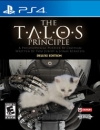| Einsam_Delphin said: Because it's purely subjective is why they shouldn't bother saying whether or not they could play it for hours, rather they should say what the game does to try and keep you playing, in Splatoon's case I briefly explained how it does so. Uhm, okay? The campaign wont be used as a reason against the game is my point there. Whether you agree with reviewers is irrelevant to the score they give, which is what this thread's about, predicting what score they give. From just 3 hours with the game I'd already give it an 80 personally, but I know some reviewers will be trolls and latch onto the lack of content misconception and make a big deal out of no voice chat giving it 60s knocking down the average, hence why I'm predicting a 78 meta, which is still good. I just explained why, because people buying the game are taking that content into account. A reviewer complaining about a lack content is only wasting everyone's time, because day one buyers will be getting more content frequently, and late adopters will already have all that content. What they should be saying on the matter, is whether or not the gameplay is good enough to make that content meaningful and whether or not what's on the disc is enough to hold you over until the updates start coming. Some of us have better reasonings though! |
You seem adamant in seeing a path for the critic to follow when reviewing Splatoon. Just because something is purely subjective doesn't mean the reviewer can't bring it up or not. You don't know if the campaign won't be used as a reason (I don't see why, if the campaign turns out to be bad, shouldn't be brought up as an issue on the review). I think the reviewers will simply see a good game in Splatoon and give it 6 and 7, which are good scores. Nothing groundbreaking, nothing outstanding. There's no "lack of content misconception", it all depends on the reviewer perception. Some people won't even bring up the no voice chat thing; would you say that's better than someone who complains about it? At the end of the day, critics will be giving their scores based on their empirical experience with the game. Whether you want to consider 6 as a trollish review that lowers the average, that's up to you.
How that empirical experience goes on neither you or me know, and again, for the third time, we can only speculate. No one buying the game is taking anything into account. There's people that will purchase the game regardless of the score given, and there's people who would like to see how the game fares before making a choice. You can't just generalize saying "A reviewer complaining about a lack content is only wasting everyone's time", because precisely that could be the difference between people purchasing it now and purchasing it later, or simply not purchasing it at all. (Which, if it is the case, doesn't speak well on the game's behalf).
"What they should be saying on the matter" feels more like "What I'd like them to say on the matter" in this case. Reviewers should be saying whatever they feel like saying, as long as is it honest and tries to achieve certain degree of objectiveness. If they want to criticise story, music, sound, replay value, connectivity, voice chat, gameplay, and how long the credit sequence is, they should go for it.


















